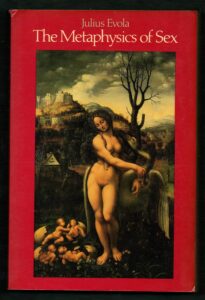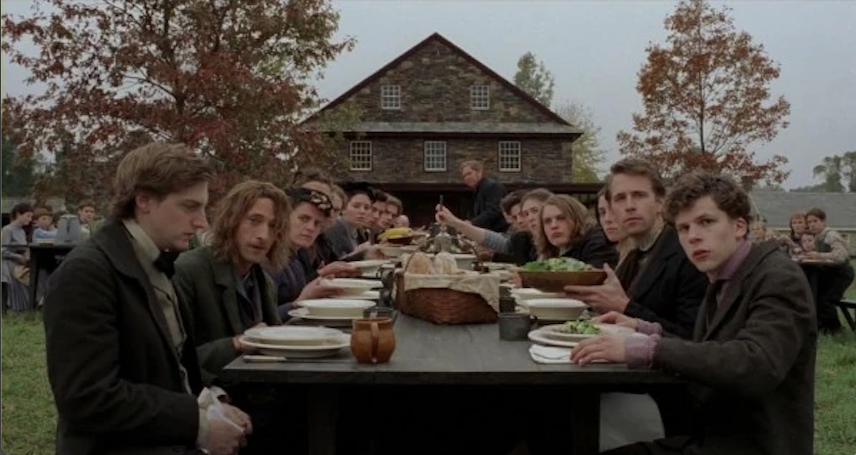and the Sun, 6
Editor's Note: Bold emphasis is mine.
As I have previously stated, Adolf Hitler was from early adolescence, and probably from childhood, conscious of the shocking disparity that exists between ‘real life’—life under Dark Age conditions—as it drew his attention through thousand and one details, and his own conception of earthly perfection, a living reflexion of which he sought in the world of the old Germanic Sagas (transfigured, for him, in Wagner’s musical dramas) and—Kubizek tells us,—in the stately blonde young maiden to whom he never spoke, but whom he idealised from a distance as the resplendent embodiment of perfect German womanhood.[1] Instances of human misery, nay—and the importance of this can never be sufficiently stressed— instances of the age-old exploitation of animals by man,[2] which another person would have deplored, but judged unavoidable, or looked upon as trifling, or not noticed at all, provided him with an opportunity to feel indignant and to crave for entirely new conditions of life. But it is during the years of grinding poverty and complete moral solitude, which he spent in Vienna as a young man, that the experience of the wretchedness and ugliness of this present Age imposed itself upon him for the first time in all its tragic horror. He has described it in immortal words.[3] And, more than the daily contact with material misery itself (with material misery which he, by the way, not merely beheld, but actually shared), the sight of the degrading effects of that misery upon his people and upon their young children was unbearable to him.
Two facts should, at that stage of Adolf Hitler’s life, retain the attention of whoever wishes to understand him and the Movement he was to start ten years later, obviously as a political Movement for the assertion of Germany’s rights, in reality, also as the moral and metaphysical basis of a new civilisation: first, the aloofness in which he lived, amidst the surrounding misery and degradation; and then, the thoroughness and detachment with which he studied the latter, traced its deep causes under the immediate, superficial ones, and became, through that clear knowledge, more and more aware of his own predestined role in this Age of Gloom. ‘One cannot ‘study’ the social question from above,’ writes he, in Mein Kampf.[4] One has, one’s self, to experience the same perpetual insecurity of life, to be acquainted with the same pangs of hunger, to dwell in the same over-crowded, dirty, noisy surroundings as the disinherited classes, in one word, to live the wretchedness that gnaws into them and degrades them, in order to know what social misery means. The future German Führer has lived it, and suffered from it, personally, day after day, for months, for years, without it ever degrading or even changing him. He preferred to ‘exist’ on hunger rations, rather than sacrifice his independence or sell more than it was absolutely necessary of the precious time he needed to study both books and men and to think. And when he had earned a little money, he preferred to buy himself a seat in the theatre—two or three hours’ holiday in the beautiful world of the old Sagas, to the accompaniment of Wagner’s solemn music, away, far away from the daily dreary wretchedness that seemed to be his lot for ever,—rather than treat himself to a substantial meal.[5] He refused publicity—and money—rather than to allow a story which he had written to he printed by a Jew.[6] Nobody can understand him save a true artist who is, at the same time, a true revolutionary: a person of one dream and one aim, like himself. But how well every such a one—every creator and fighter of his type, when surely not of his magnitude, i.e. every person ‘against Time’—does understand him!
There is more. Not only did he live in uncompromising faithfulness to his ideals, inaccessible to the lure of material comfort and social advantages, but he shared none of the weaknesses of average mankind, not to mention the vices of that underworld into which fate had pushed him or, by the way, those of the so-called ‘better classes’ of this fallen humanity. He rigourously abstained from alcohol and tobacco; and even when, occasionally, he could afford a diet other than his usual bread and milk, he ate pastry and fruits, not meat. His deeper instinct inclined him naturally towards that sort of food which people, in whose life an immemorial Tradition still plays a great part, call ‘pure.’[7] And the dictates of serious reflexion merely confirmed in him those of deeper, healthy instinct. Adolf Hitler was, in course of life, to become a more and more convinced vegetarian; and though disaster robbed him of the opportunity of attempting ‘after the war,’ to give his views, gradually, the force of law, he remains, to my knowledge, the only ruler in the West who, both on hygienic and moral (and aesthetic) grounds, ever earnestly considered the possibility of suppressing meat-eating, and of abolishing thereby the standing horror of the slaughterhouses. This is reported by Dr. Goebbels in his ‘Diaries,’[8] and brilliantly confirmed by numerous statements ascribed to the Führer himself in the ‘Dinner-time talks,’ also printed after 1945 by the bitterest enemies of National Socialism, certainly not with the intention of exalting him.
As a young man, and nay, a very attractive one, Adolf Hitler withstood the manifold temptations of the corrupt metropolis—ignored the solicitations of women, rejected with disgust those of men, and kept the sacred ‘flame of Life’ (to use the word Kubizek quotes) pure and strong and constantly under control within himself. He did so without the slightest intention of ‘mortifying the flesh’; without the slightest desire of ‘acquiring merit’ for the salvation of his soul; simply because he respected that energy given to man for a higher purpose, and looked upon every wanton waste of it as a sin against the Race at the same time as a profanation of the divinity of Life. The ‘flame of life,’ felt he, was to be dedicated to the selfless service of the Race, visible Vehicle of Life eternal. It was to be used, like man’s whole physical and moral energy, ‘in the spirit of the Creator,’ i.e., in view of the attainment of perfection on earth. The entire National Socialist teaching concerning sex and sexual relations, with its well-known stress upon absolute health and racial purity, as laid down in Mein Kampf,’[9] has its origin and its basis in that truly religious (although anything but ‘other-worldly’) attitude; in that standpoint of the ‘Man against Time’ seeking, in defiance of the corruption of the Dark Age, to re-establish, here and now, the biological—i.e. fundamental—conditions of the earthly paradise; preparing the privileged, natural élite of mankind for the part it has to play in the formation of the god-like Race of the new earth, that will thrive in peace after this Dark Age has come to an end.
And all Adolf Hitler’s positive measures in view of the physical and moral protection of his predestined people, natural leaders of Aryan man, after he came to power: his admirable laws for the welfare of mother and child; for the creation of ideal living conditions for workmen’s families; for the education of a healthy, self-confident and self-reliant, proud and beautiful youth; and his famous ‘Nüremberg Laws,’ forwarding the growth in Germany of a pure-blooded Germanic race (forbidding sexual relations with Jews and, in fact, with non-Aryans of any description), have no other origin and no other meaning. Their aim—nay, the practical aim of National Socialism as such—was and remains not merely to improve the material lot of the German labourers (however important a part this immediate aim doubtless played in the success of the Hitler Movement in Germany, after the first World War); not merely to make the new State, comprising all people of Germanic blood—that ‘holy Reich of all Germans’[10] of which Adolf Hitler already spoke in his adolescent’s conversations with August Kubizek—a strong and prosperous State, but to regenerate the German people—the most conscious among the Aryans of the West—radically, and to organise them, in all walks of life, so as to create out of them the only dam capable of withstanding and thrusting back the threatening tide of inferior humanity, whose rise is, in this as in every Time-cycle, the increasingly tragic sign of an advanced stage of the Dark Age; capable of thrusting it back and of carrying, beyond its defeat, (and its destruction, at the very end of the Age of Gloom) the treasure of god-like life into the glory of the new Beginning.
As I said before, it is difficult to state how far Adolf Hitler could have explicitly given expression to this point of view. It was, nevertheless, in reality, his point of view. In particular, he was and remained all his life vividly aware of the compelling necessity of preserving, nay, of forwarding, at any cost the racial aristocracy of mankind—the best elements of the Aryan race,—if this planet is not, after an appalling period of chaos, (after the end of the present Time-cycle) ‘to go its way, void of human beings, through aetherial space, as it did millions of years ago.’1 Standing alone, personally untouched by Dark Age conditions at their worse, although deeply and painfully acquainted with them, he observed their effects upon the people in whom his unfailing intuition forced him to recognise, in spite of all, the predestined biological substance of an infinitely better mankind: the ones who are not yet, but who (to quote Nietzsche’s words) are ‘becoming,’ or at least are capable of becoming supermen: his own German people. And, with serenity and with realism, he sought the causes of physical and moral wretchedness; the many causes: selfishness of the owning classes; indifference or cowardice of men in power; the grip of international high finance upon national economy; the influence of Jewry upon the national body and soul, etc.; etc., but under those many causes, the one cause: the rule of false values; the exaltation of untruth, which is synonymous of sickness; in all domains, rebellion against the spirit of the divine Order of Nature. That is what he had come to fight, so that the ‘reign of Righteousnes’ be re-established.
__________
[1] Kubizek, Adolf Hitler, mein Jugendfreund, p. 76 and following.
[2] Ibid., p. 61.
[3] Mein Kampf, pp. 23; p. 32 and following.
[4] Ibid., p. 26.
[5] Kubizek, p. 37.
[6] Ibid., pp. 298-299.
[7] In Sanskrit: sattwik.
[8] See The Goebbels Diaries, entry of the 26th April, 1942.
[9] Mein Kampf, p. 444-446.
[10] Kubizek, p. 109; Mein Kampf, p. 439.








